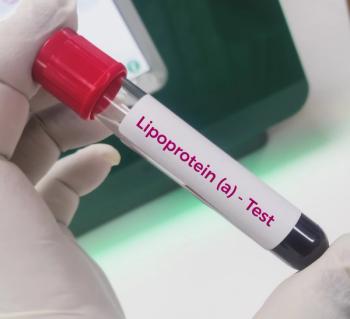
AHA Updates: Brilinta Plus Aspirin Cuts Stroke Risk in Heart Plaque; More Results for Finerenone
Updates from the American Heart Association Scientific Sessions.
Patients who took Brilinta (ticagrelor, AstraZeneca) along with aspirin were less likely to die or have another stroke within the first month after suffering a transient ischemia attack, or “mini stroke,” according to results presented Monday evening during the American Heart Association (AHA) Scientific Sessions.
Patients who had plaque build-up on their arteries and suffered a TIA were 27% less likely to have a second stroke within 30 days if they took the combination, compared with those who took aspirin alone. These patients accounted for about one-fifth of those enrolled in the THALES trial, which included more than 11,000 participants.
THALES, or The Acute Stroke or Transient IscHemic Attack Treated with Ticagrelor and Aspirin for PrEvention of Stroke and Death trial, added to the evidence showing that for patients with plaque in their arteries, the combination of Brilinta with aspirin is more effective than either medication along in preventing future strokes.
“In our opinion, health care professionals should now consider both ticagrelor and aspirin to prevent another stroke in patients who experience a warning stroke,” said lead author Pierre Amarenco, MD, professor of neurology at Paris University. “Our research shows treating patients within 24 hours of their first symptoms using this newer regimen is effective, especially when the cause of the stroke is due to plaque build-up in the arteries,”
Patients in the trial took an initial dose of 180 mg, and then researchers added 90 mg of Brilinta twice a day to 75-100 mg of daily aspirin for one month.
Findings from the exploratory analysis
THALES is a randomized, placebo-controlled, double-blind, international, multi-site study. It began in January of 2018 and is now phase 3. Data from the trial led FDA to
Finerenone effective in CKD, Type 2 Diabetes. An investigational therapy reduced the risk of heart attack, stroke, and heart failure in patients who had chronic kidney disease (CKD) and type 2 diabetes, with no differences based on pre-existing cardiovascular disease, according to results presented Monday at AHA.
Findings published in the journal
Results presented Monday showed that after a follow-up of more than 30 months, taking the drug reduced the risk of cardiovascular events by 14%, with no significant difference based on patients’ prior history of heart disease. The study was funded by Bayer AG.
Newsletter
Get the latest industry news, event updates, and more from Managed healthcare Executive.























